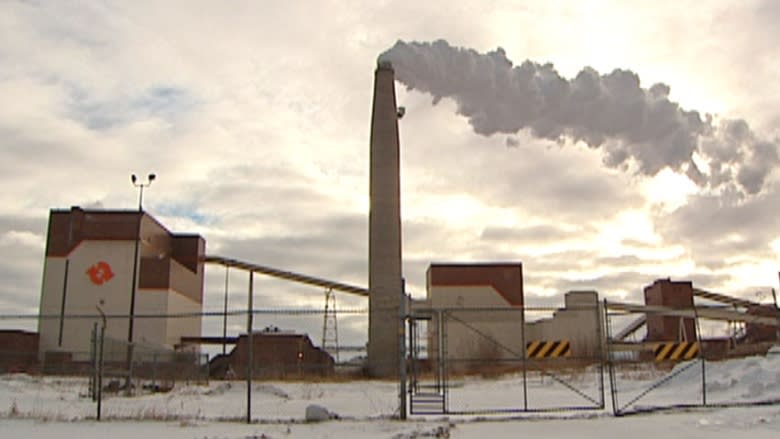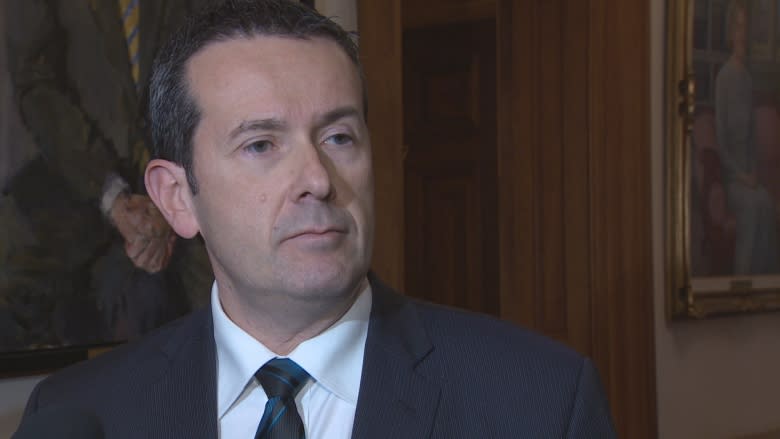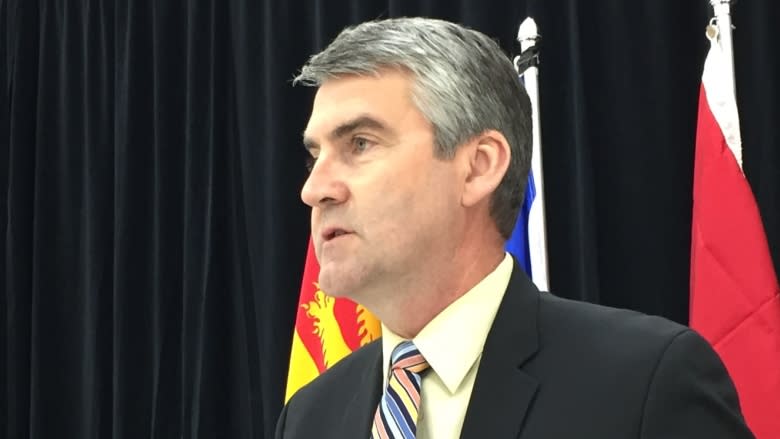Move to regional cap-and-trade system gaining momentum, says environmentalist
Momentum may be shifting in favour of a cap-and-trade system over a carbon tax to reduce greenhouse gas emissions in New Brunswick.
Environmentalist Louise Comeau of the Conservation Council of New Brunswick says comments by Nova Scotia Premier Stephen McNeil are the latest sign that cap-and-trade is becoming the preferred option for the Liberal government of Brian Gallant.
McNeil, whose government is setting up a cap-and-trade regime there, said last week that Nova Scotia is talking to the other Atlantic provinces "to see if we could potentially do a regional one."
Nova Scotia made a deal with the federal government last year that will give it an exemption from a federal phase-out of coal by 2030.
"I think the Nova Scotia deal opened people's minds to the option of cap and trade in a way they hadn't been thinking of," Comeau said.
"The idea of what they're going to do has shifted a lot, always. For a while, it was all about carbon tax because it was easier to administer. Lately I've been seeing much more interest in cap and trade."
Push for carbon system
Finn Poschmann, CEO of the Atlantic Provinces Economic Council, says he would "not have been a fan" of a Nova-Scotia-only cap-and-trade system, but "my thinking has definitely shifted on it" now that a regional model is on the table.
"If you're going to have a cap-and-trade program, it's better to have as many possible buyers and sellers of emissions permits in the market as you can," he said. "The more people you have the potential to trade with, the more opportunities you have for gains from trade.
"The economic logic seems to me pretty clearly in favour of it."
Ottawa says any province that does not adopt some form of carbon price by next year will have a federal price imposed on it.
A cap-and-trade system involves emitters who stay below a cap earning credits that they can sell to emitters who exceed the cap.
It's considered more complicated to administer than a carbon tax, and Poschmann said it would still be complicated to set up.
No decision in N.B., P.E.I.
A spokesperson for New Brunswick Environment Minister Serge Rousselle said Friday he was not available to comment on what McNeil had to say.
In December, Rousselle said the province would "look at what our neighbours are doing, but at the end of the day, we have to find the solution, the option, that is best for the province."
Progressive Conservative environment critic Brian Keirstead said in an email statement that New Brunswickers "have never been provided detailed descriptions of any carbon tax or cap and trade options being considered by the Gallant government."
While the PCs oppose a carbon tax, Keirstead's statement was silent on whether the party considers cap-and-trade more acceptable.
Documents from the Prince Edward Island government say a carbon tax is "likely the best approach" there because "it can be implemented quickly using existing administrative system for taxing fuels."
P.E.I.'s environment minister, Robert Mitchell, said last fall that cap-and-trade probably wouldn't work there because industry is too small to have reductions that would meet the federal target.
But last week a spokesperson said there still hasn't been a decision on what carbon-price mechanism to use in P.E.I.
Agreement with Ottawa
McNeil said last week that the discussions with the other Atlantic provinces involved "giving them access to what our negotiations were and what our negotiations continue to be."
That was an apparent reference to Nova Scotia's agreement with Ottawa, which recognizes the province's 2009 emissions cap that put it on track to meet Ottawa's target of reducing emissions to below 30 per cent of 2005 levels by 2030.
While New Brunswick is on pace to hit shorter-term emission reduction goals for 2020, in part because of several mill closures almost a decade ago, "we're not even remotely close" to getting to the 2030 goal, Comeau said.
"We need reductions that are deeper than what the economy will deliver on its own."
Linking projects
Nova Scotia will be allowed to keep burning coal past the 2030 deadline set by Ottawa in return for emissions reductions in other areas. It will also use reductions in its electricity sector as credits that it will give away to industry.
"Industry in Nova Scotia in the short term has nothing to do," Comeau said. "They're getting free allowances."
It remains to be seen whether New Brunswick could be folded into that part of the Nova Scotia regime, and how a carbon price, the coal phase-out, and federal funding for green energy projects will be linked.
But Comeau said she expects an announcement soon.
"Things have been awfully quiet lately," she said.
"When it's quiet it means they're doing their deals, real quiet-like. Something's about to come, I'm sure, that will announce how much money the feds are providing, for what purposes, and what the arrangements will be for cap and trade and electricity, and it'll all be one package."





